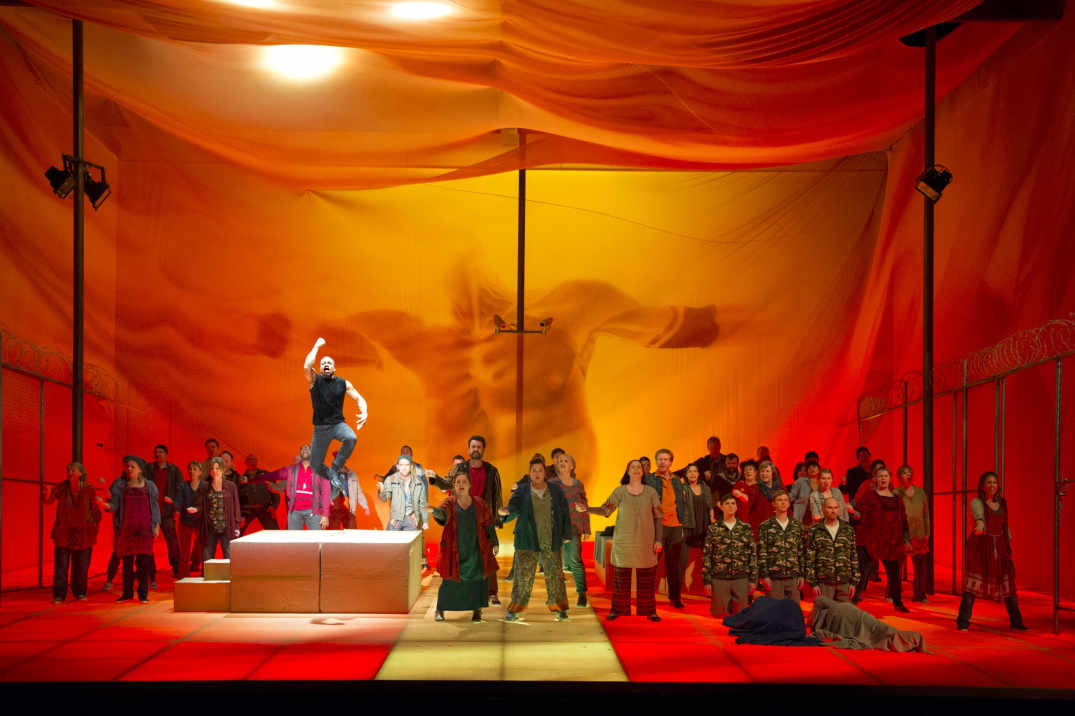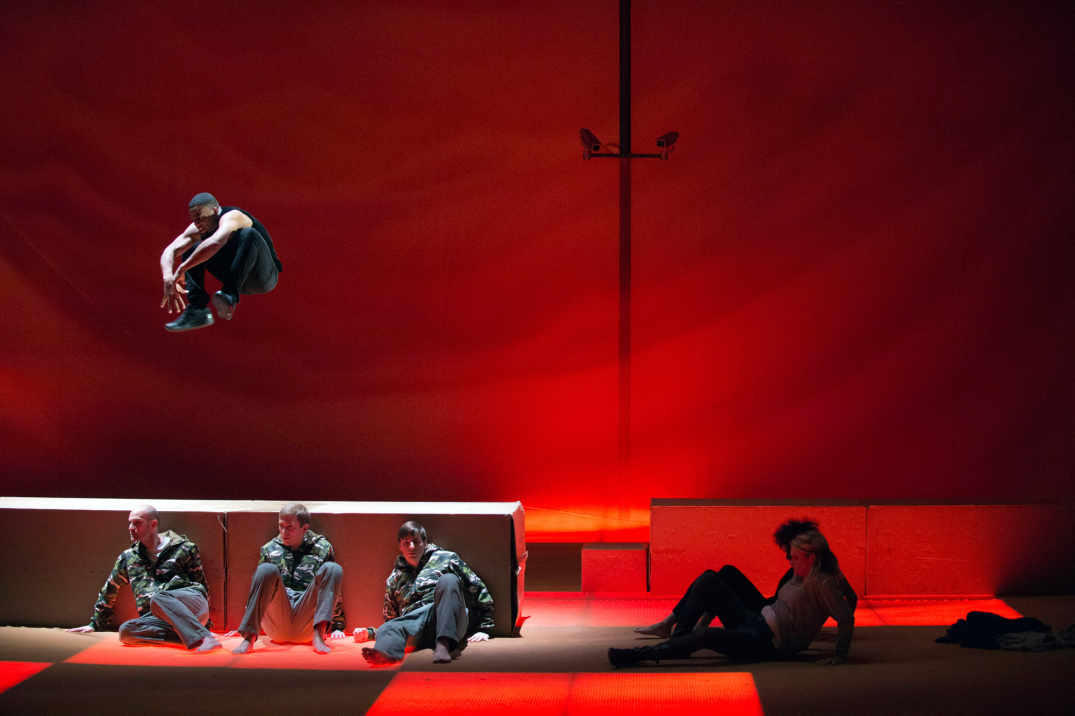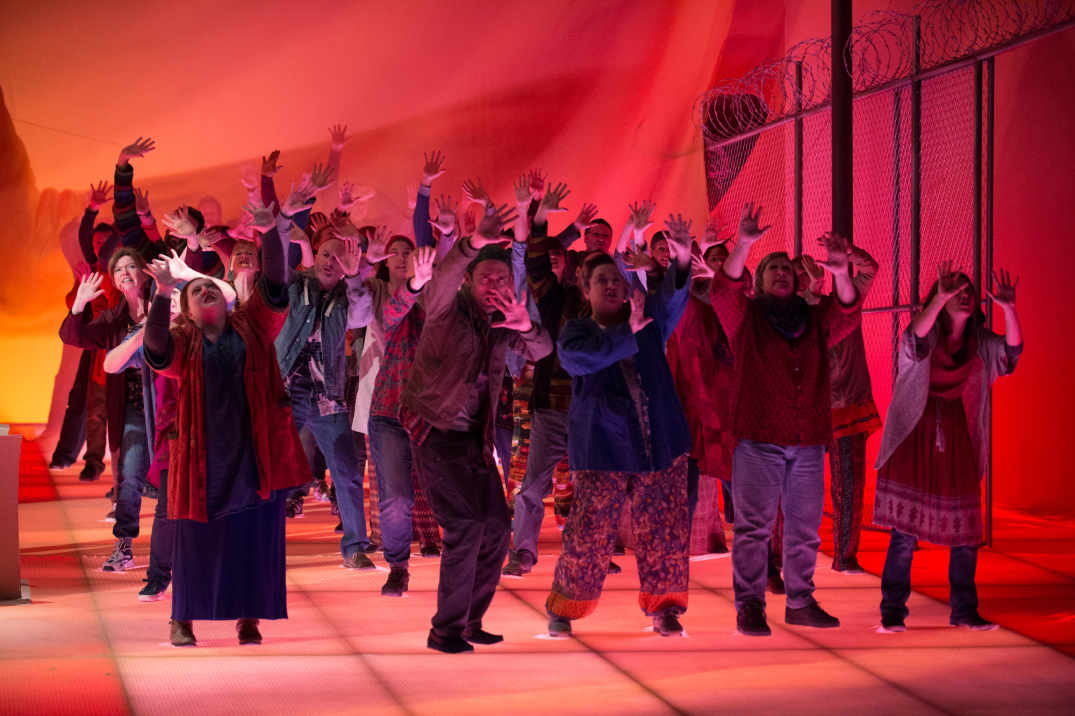Go to see The Gospel According to the Other Mary, and you’ll witness a thrilling demonstration of the remarkable range and skill of the American composer, John Adams. Not only that, you’ll also have the treat of experiencing some truly impassioned singing, playing and dancing. What is potentially problematic, however, is the small matter of this work being transformed from a semi-staged concert work to a full-blown piece intended for the opera house. You might well ask: “Is this really an opera at all?” Well, no, not really. At least not conventionally speaking…
The Gospel is a passion oratorio (of sorts) for orchestra, chorus and solo singers. Predictable so far, you might think, yet this work is primarily told from female perspectives, as well as through a sort of literary prism; that is to say, Sellars has cobbled together Old and New Testament sources alongside scraps of text by Dorothy Day, Louise Erdrich, Primo Levi and Hildegarde von Bingen, amongst others. This strange cross-epocha patchwork of texts is genuinely stimulating, if narratively obstructive for a collection of stories that need to translate well to an operatic format. Sellars’ staging of The Gospel is carefully and idiosyncratically stylised, with choreographed gestures accompanying large portions of the chorus and the Seraphim’s singing; presumably, the point of all this is to provide an extra-narrative mode of expression, however I don’t feel it carried much real substance. Despite this, one of the most exciting elements in the production was the dancing. Banks’ power and muscularity provided a striking counterpoint to Stephanie Berge’s lithe easiness; Adams’ music works so well in tandem with dance.
Musical highlights can be found… well… everywhere. Adams reserves some of his most beautiful crystalline music for the Seraphim, sung tremendously well by the all-American trio of countertenors (Dan Bubeck, Brian Cummings and Nathan Medley). Patricia Bardon’s ‘Other Mary’ (Mary Magdalene) is a strongly acted and red-bloodedly sung lead character, who is well complimented by Meredith Arwady’s Martha, who attacks some terrifically low-lying vocal writing with extraordinary sonorous ease. Russell Thomas, last but not least, sings a dramatic and declamatory Lazarus. The orchestra attack this colossal score with abandon under Joana Carneiro’s potent and focused direction.
The Gospel is well worth a trip to the Coliseum, even just to hear such an outrageously impressive score, performed so wonderfully.




